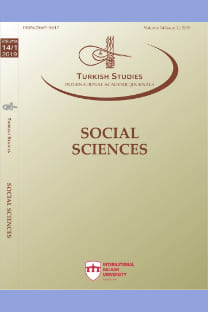Globalization: Cultural and Economic Cooperation or Loss of Identity and Diversity
Thanks to global media and communication, we obtain information from all over the World and easily recognize the signs of global culture. This globalization has led to a fusion of knowledge, morals, and cultures; namely, it has led to the creation of a global world culture, which has emerged precisely because of the modern forms of communication. Those who consider the globalization to be a positive process that, in a historical sense, is connecting people and cultures, also claim that it has enabled the disappearance of the economic borders and has connected the economies all over the World. Consecutively, this has led to a mixture of people who, by seeking a safer economic future, actually dislocated and shared their cultures and traditions on other sides of the World. This interconnection would not have been possible without the existence of strong media corporations, which turned the World in a global village – just as Marshall McLuhan has once predicted. In the media circles, the radically higher potential than the printed or electronic media and the epochal role of the internet cannot be overlooked. By offering encyclopedias, dictionaries, and books with just one click, the internet not only offers knowledge and entertainment to almost everyone, but it also speeds up globalization significantly. On the other hand, many people consider the globalization to be an expansion of the western cultures and their values and the idea of giving even more power to the West has met a firm opposition from some countries. The most prominent example is probably China, but also other smaller countries, which believe that the West hegemonizes the weaker through the process of globalization. Therefore, the resistance towards the globalization is in fact fear of losing your own values and substituting them with foreign ones.
Küreselleşme: Kültürel ve Ekonomik İşbirliği mi, Kimlik ve Çeşitlilik Kaybı mı?
Küresel medya ve iletişim sayesinde, dünyanın her yerinden bilgi alıyoruz ve küresel kültürün işaretlerini kolayca tanıyoruz. Bu küreselleşme bilgi, ahlak ve kültür kaynaşmasına yol açtı; yani, tam olarak modern iletişim biçimleri nedeniyle ortaya çıkan küresel bir dünya kültürünün yaratılmasına yol açmıştır. Küreselleşmeyi, tarihsel anlamda insanları ve kültürleri birbirine bağlayan, aynı zamanda ekonomik sınırların ortadan kalkmasını sağladığını ve tüm dünyadaki ekonomileri birbirine bağladığını iddia eden olumlu bir süreç olarak kabul edenler. Ardından, bu, daha güvenli bir ekonomik gelecek arayışı içinde, kültürlerini ve geleneklerini dünyanın diğer taraflarında gerçekten yerinden çıkarıp paylaşan insanların bir karışımına yol açtı. Bu bağlantı, Dünyayı küresel bir köyde döndüren güçlü medya kuruluşlarının varlığı olmadan mümkün olmazdı - tıpkı Marshall McLuhan'ın bir zamanlar öngördüğü gibi. Medya çevrelerinde, basılı veya elektronik medyadan çok daha yüksek bir potansiyel ve internetin yankı rolü göz ardı edilemez. İnternet, sadece tek bir tıklamayla ansiklopediler, sözlükler ve kitaplar sunarak, hemen hemen herkes için bilgi ve eğlence sunmakla kalmaz, aynı zamanda küreselleşmeyi de önemli ölçüde hızlandırır. Öte yandan, birçok insan küreselleşmeyi batı kültürlerinin ve değerlerinin bir genişlemesi olarak görüyor ve Batı'ya daha fazla güç verme fikri bazı ülkelerden sert bir muhalefetle karşılaştı. En belirgin örnek muhtemelen Çin’dir, ancak Batı’nın küreselleşme sürecinde daha zayıf olduğu görüşünde olan daha küçük ülkelerdir. Bu nedenle, küreselleşmeye karşı direnç aslında kendi değerlerinizi kaybetme ve onları yabancı değerlerle ikame etme korkusudur.
___
Appadurai, A. (1990) “Disjuncture and Difference in the Global Cultural Economy, in M. Featherstone, Global Culture: Nationalism, Globalization and Modernity: A Theory Culture and Society Special Issue, 7(2-3), 295-310. https://doi.org/10.1177/026327690007002017
Bauman, Z. (1998) Globalization: The Human Consequences. Cambridge University Press
Keohane, O. R. (2001) “Governance in a partially globalized world.” American Political Science Review, 95:1-13.
Nussbaum, M. (1997) Cultivating Humanity: A Cllasical Defense of Reform in Liberal Educations, Harvard University Press
Robertson, R. (1995) “Globalization” in M. Featherstone, S. Lash and R. Robertson. Global Modernities. Eds. London:
Robins, K. (1991) “Tradition and Translation: National Culture and its Global Context”, in J. Corner and S. Harvey. Enterprise and Heritage: Crosscurrents of National Culture. Ed. London
Ramonet, I. (1997) Le Monde diplomatique, Fortune: April
Rosenau, N. J. (1990) Turbulence in World Politics, Brighton: Wheatsheaf
Wallerstein, I. (1983) “Klassenanalyse und Weltsystemanalyse” in R. Kreckel, Soziale Ungleichheiteen, Soziale Welt. Ed. special issue 2. Gottingen
Waldron, J. (2000) ”What is cosmopolitan” The Journal of Political Philosophy, Volume 8, 227- 243
